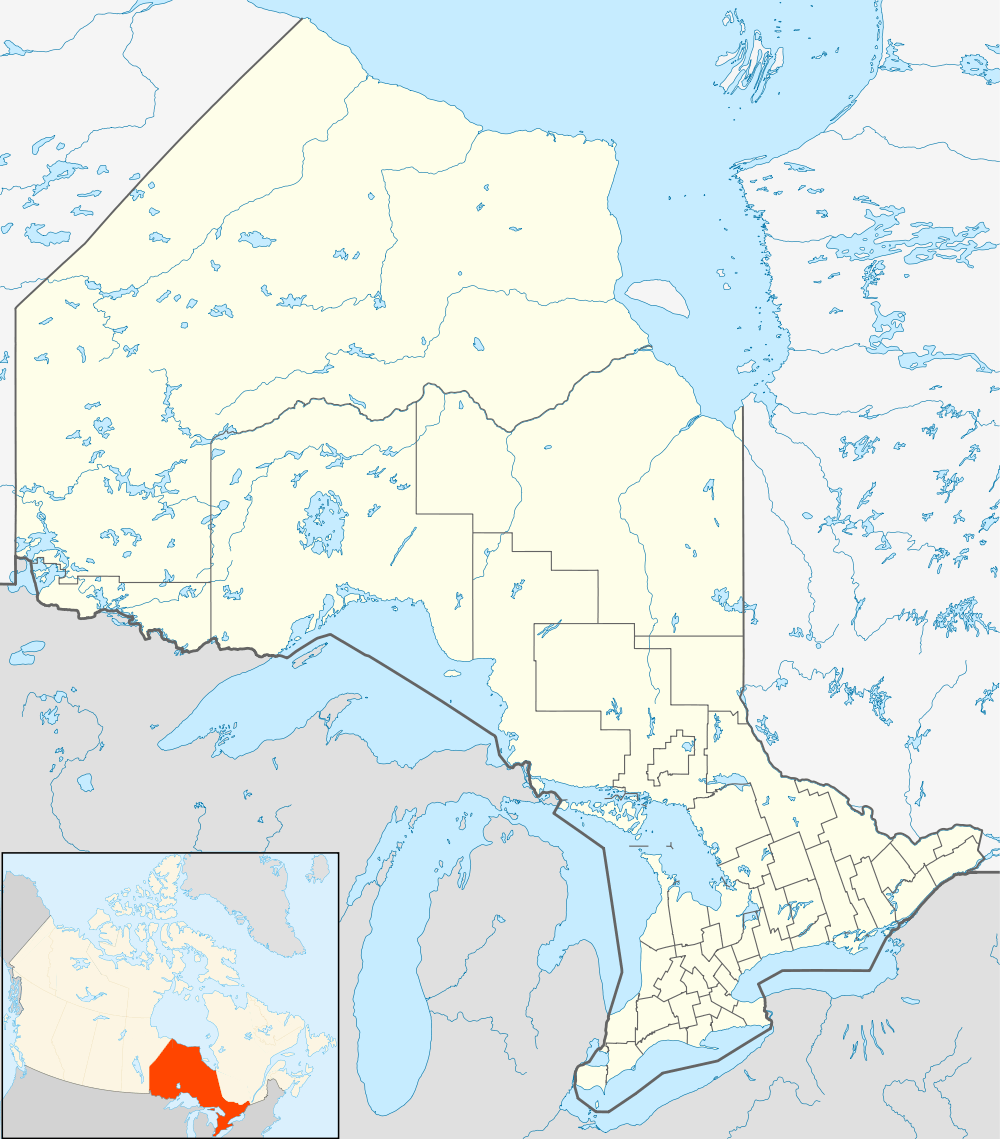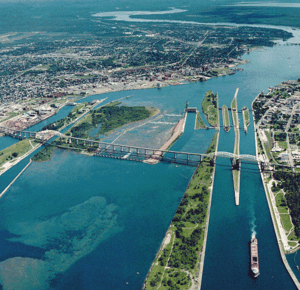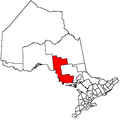Whitefish Island
| Whitefish Island | |
|---|---|
| Indian reserve | |
| Whitefish Island Indian Reserve | |
|
Aerial view of the St. Marys River; Whitefish Island is just to the left of the rapids. | |
 Whitefish Island | |
| Coordinates: 46°31′N 84°21′W / 46.517°N 84.350°WCoordinates: 46°31′N 84°21′W / 46.517°N 84.350°W | |
| Country |
|
| Province |
|
| District | Algoma |
| First Nation | Batchewana Ojibways |
| Area | |
| • Land | 0.17 km2 (0.07 sq mi) |
| Population (2011) | |
| • Total | 0 |
| • Density | 0/km2 (0/sq mi) |
| Time zone | EST (UTC-5) |
| • Summer (DST) | EDT (UTC-4) |
| Website | www.batchewana.ca |
| Official name | Whitefish Island National Historic Site of Canada |
| Designated | 1981 |
Whitefish Island is an island in the St. Marys River, just south of Sault Ste. Marie, in Ontario, Canada.
History
It was an ancestral fishing station to the Anishenabek of the Great Lakes region for over 2,000 years. It was reserved for the use of Chief 'Joe Sayer' Nebenaigoching and his band in the Robinson Huron Treaty, 1850 with the British Crown.
In 1895 it became part of the west side of the Sault Ste. Marie Canal.
After it was taken in a series of expropriations from 1902-1913 for railway purposes, it became a park in the Parks Canada national inventory. The island was designated a National Historic Site of Canada in 1981.[1]
A land claim was filed in 1982 by the Batchewana Indian Band, of the Batchewana First Nation of Ojibways, for the 22-acre (89,000 m2) island. After years of unsuccessful negotiations, hereditary Chief Edward James Sayers Nebenaigoching occupied the island from 1989 until the claim was settled in 1992. 3.5 million dollars in damages were paid to the tribe, and the island was returned to Indian reserve status in 1997.
- Welcome to White Fish Island
- Ancient fishing weir
- Birch bark longhouse
- Longhouse in winter
- Birch bark lodge
- Boardwalk with 7 flood control gates open (equivalent).
 Sault Ste. Marie waterfront, as seen from Whitefish Island
Sault Ste. Marie waterfront, as seen from Whitefish Island St. Marys Rapids
St. Marys Rapids- Beaver dams along Whitefish Channel
- February daphne flowers (native to Eurasia, unknown how they arrived)
- Narrow-leaf blue-eyed grass flowers near the St. Marys Rapids
- Trout-lily flower in early spring
- Wild leek in early spring
- Wild raisin in fruit
- Steelhead trout caught in the St. Marys Rapids (introduced species)
References
- ↑ Whitefish Island. Canadian Register of Historic Places. Retrieved July 29, 2011.
External links
| Wikimedia Commons has media related to Whitefish Island. |
 |
Sault Ste. Marie Sault Ste. Marie Canal |
 | ||
| St. Marys River | |
St. Marys River | ||
| ||||
| | ||||
| St. Marys Rapids, Soo Locks |

